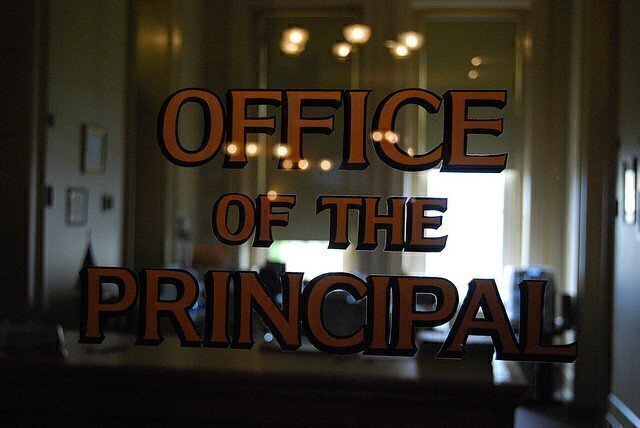
On January 15, 1985, the U.S. Supreme Court ruled in New Jersey v. T.L.O., holding that public school administrators can search a student’s belongings if they have a reasonable suspicion of criminal activity.
The case originated in Piscataway, New Jersey, where, in 1980, a teacher at the local public high school stumbled upon two girls smoking in a bathroom. One of the girls was T.L.O., then a 14-year-old freshman. Because smoking was against school rules, the teacher brought T.L.O. and her companion to an assistant vice principal, who questioned both girls.
During the questioning, T.L.O.’s friend admitted her own guilt, but T.L.O. denied the accusation. Unconvinced, the assistant vice principal demanded to see T.L.O.’s purse. Upon searching it, he discovered, among other things, a pack of cigarettes, a small amount of marijuana, rolling papers, and an index card with a list of students that owed T.L.O. money. The assistant vice principal turned over the contents to the police, who used that evidence to bring delinquency charges against T.L.O.
At that point, T.L.O. moved to have the contents of her purse ruled inadmissible in court, arguing that they were obtained through an illegal search under the Fourth Amendment. The trial and appeals courts rejected her motion, but the New Jersey Supreme Court disagreed, holding that the exclusionary rule applies to public school officials.
Ultimately, the Supreme Court held 6-3 that the school’s search of T.L.O.’s purse was constitutional. Writing for the majority, Justice Byron White began by noting that public schools are institutions operated by the government. Therefore, public school students retain their Fourth Amendment rights.
“This Court has never limited the Amendment's prohibition on unreasonable searches and seizures to operations conducted by the police,” he explained. “Rather, the Court has long spoken of the Fourth Amendment's strictures as restraints imposed upon ‘governmental action’”—including actions taken by public school officials.
Next, Justice White detailed precisely how the Fourth Amendment applies in public schools. On the one hand, he wrote, “schoolchildren have legitimate expectations of privacy.” On the other hand, schools have an “equally legitimate need to maintain an environment in which learning can take place.” What, then, would a proper balance of these interests look like?
White answered by distinguishing the situation. “It is evident,” he wrote, “that the school setting requires some easing of the restrictions to which searches by public authorities are ordinarily subject.” As such, a warrant is not required to search a student, nor is “probable cause” required.
No, wrote White, “the legality of a search of a student should depend simply on the reasonableness, under all the circumstances, of the search.” And under this new standard, the search of T.L.O.’s purse was not unreasonable.
But that’s not how every Justice saw the case. Justices William Brennan and John Paul Stevens wrote partial dissents, both joined by Justice Thurgood Marshall, expressing concern about the majority's rationale and its apparent weakening of Fourth Amendment protections. This excerpt from Justice Brennan’s opinion captures the feeling:
Today's decision sanctions school officials to conduct full-scale searches on a "reasonableness" standard whose only definite content is that it is not the same test as the "probable cause" standard found in the text of the Fourth Amendment. In adopting this unclear, unprecedented, and unnecessary departure from generally applicable Fourth Amendment standards, the Court carves out a broad exception to standards that this Court has developed over years of considering Fourth Amendment problems. Its decision is supported neither by precedent nor even by a fair application of the "balancing test" it proclaims in this very opinion.
Of course, even then, the Supreme Court was no stranger to cases related to students and education. To this day, the Court continues to adjudicate disputes arising from the nation’s classrooms—unavoidable, perhaps, in a country where “students don’t shed their rights at the school house gates.”
Nicandro Iannacci is a web content strategist at the National Constitution Center.







